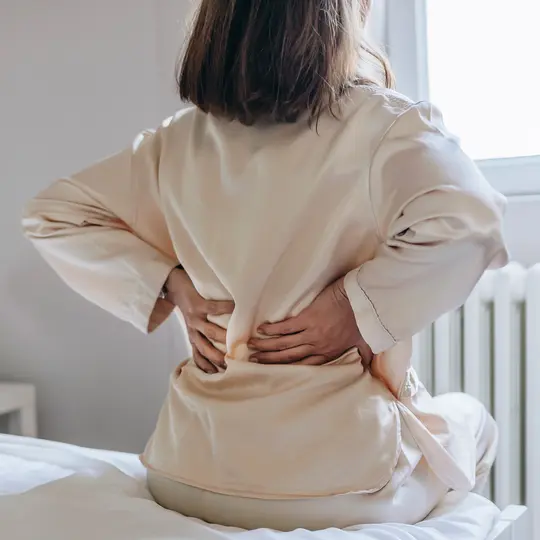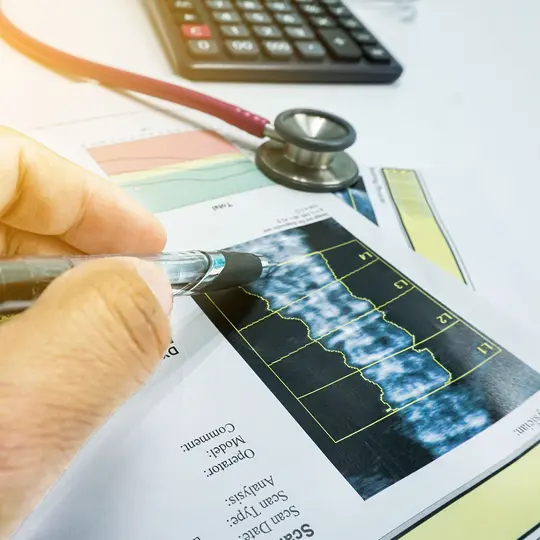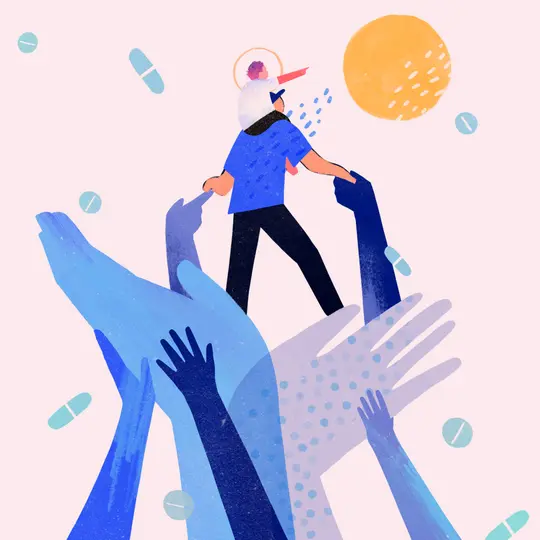1 of 7 / Overview
View All
2 of 7 / Symptoms & Types
View All
3 of 7 / Risks & Prevention
View All
Who Gets Osteoporosis?
Your age, gender, family history, and ethnicity all play a role in how likely you are to get osteoporosis.
Osteoporosis Prevention Basics
A healthy diet and certain types of exercise, among other things, can help to cut your osteoporosis risk.
Vitamin D and Osteoporosis
Vitamin D helps your body absorb calcium. And we need more vitamin D as we get older. Are you getting enough?
Prevent Disease Progression: Managing Osteopenia
A range of treatments and healthy habits can slow osteopenia (weakened bones) and prevent osteoporosis.
4 of 7 / Tests & Diagnosis
View All
What Is Bone Mineral Density?
A bone mineral density test examines segments of your bone through X-rays to detect osteoporosis.
Measuring Bone Health: DEXA Scans
One of the most common osteoporosis tests is dual X-ray absorptiometry -- also called DXA or DEXA.
Who Should Get Tested?
When should you get a bone density test? Read guidelines from the U.S. Preventive Services Task Force.
Bone Densitometry
Bone densitometry is a test like an X-ray that quickly and accurately measures the density of bone.
5 of 7 / Treatment
View All
Types of Osteoporosis Treatments
Along with a healthy diet and exercise, you can treat osteoporosis with meds that help your bones to stay as strong as possible.
Strontium for Osteoporosis
Some people say the supplement strontium improves bone health, but it’s important to consider its benefits and risks.
Selective Estrogen Receptor Modulators (SERMs)
Selective estrogen receptor modulators are a class of estrogen-boosting drugs used to treat osteoporosis in postmenopausal women.
Forteo for Osteoporosis
Forteo (teriparatide) is the only FDA-approved osteoporosis medication that builds bone.
6 of 7 / Complications
View AllWhat is Paget's Disease of the Bone?
With Paget's disease, your body builds new bone too fast and gives your bones an odd shape.
Pain and Osteoporosis
Bone fractures caused by osteoporosis can be very painful, and sometimes the pain and disability lasts for months.
What Causes Compression Fractures?
When bones are brittle, everyday activities can trigger minor spinal compression fractures.
Osteoporosis and Spine Fractures
Spine fractures can cause severe back pain that makes it hard to stand, walk, sit, or lift objects.
7 of 7 / Living With
View AllSuggested Reads about Osteoporosis
Stand Up Straight! 9 Tips for Better Posture
Poor posture can wreak havoc on your overall health. WebMD shows you 9 habits that lead to poor posture and shares tips to save your spine.
Super Foods for Your Bones
WebMD shows you how to build strong bones -- and stave off osteoporosis -- through a diet rich in high-calcium foods that might surprise you.
Conditions That Affect Your Bones
Your bones: You might not think of them much until something starts to go wrong. Find out more from WebMD's slide show about the conditions that can cause problems for the health of your bones.
Prevent Fractures From Osteoporosis
WebMD explains in this slideshow how you can prevent falls and fractures if you have osteoporosis.
8 million+ Physician Ratings & Reviews
Find Doctors and Dentists Near You
You can also search by physician, practice, or hospital name